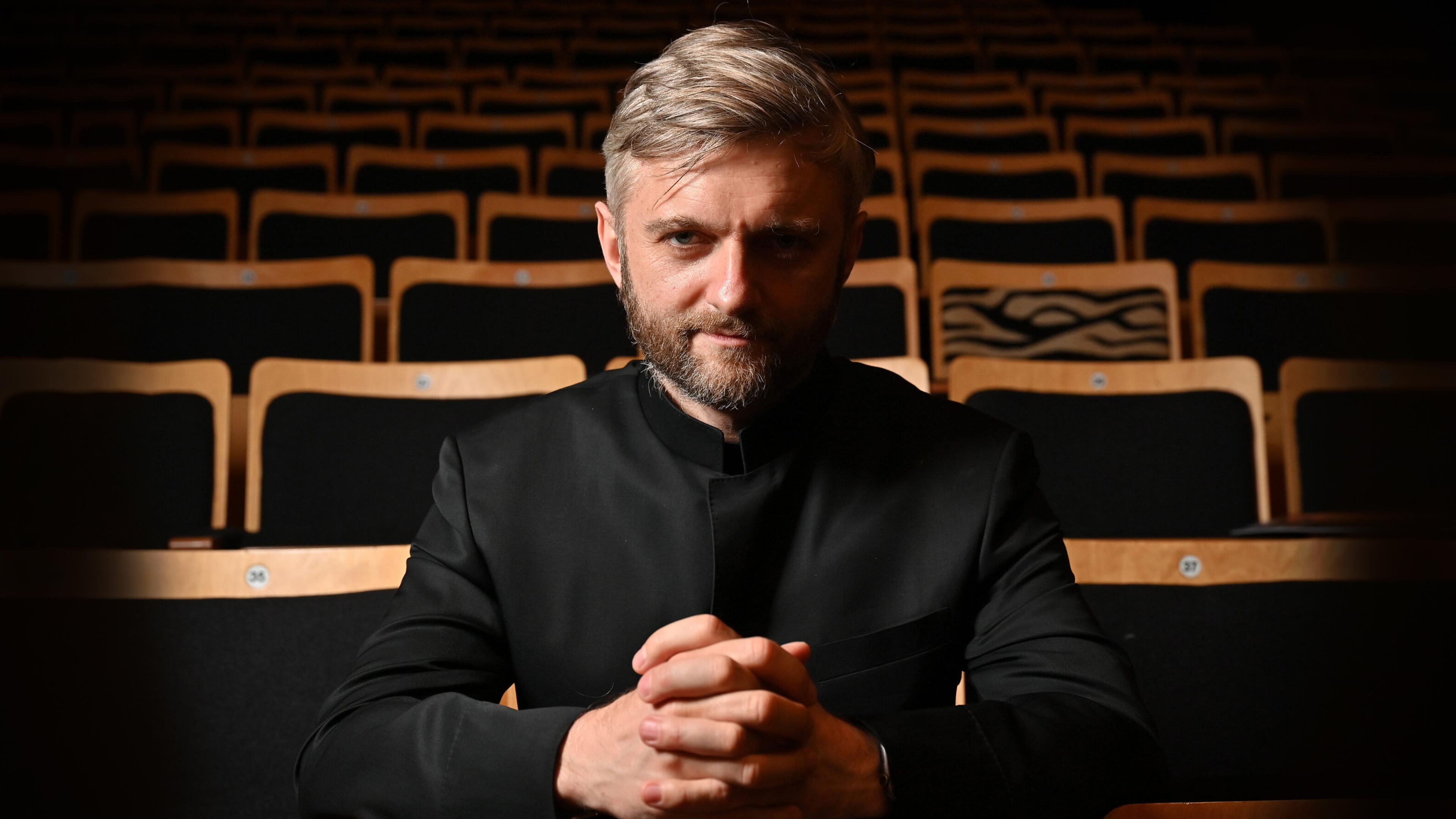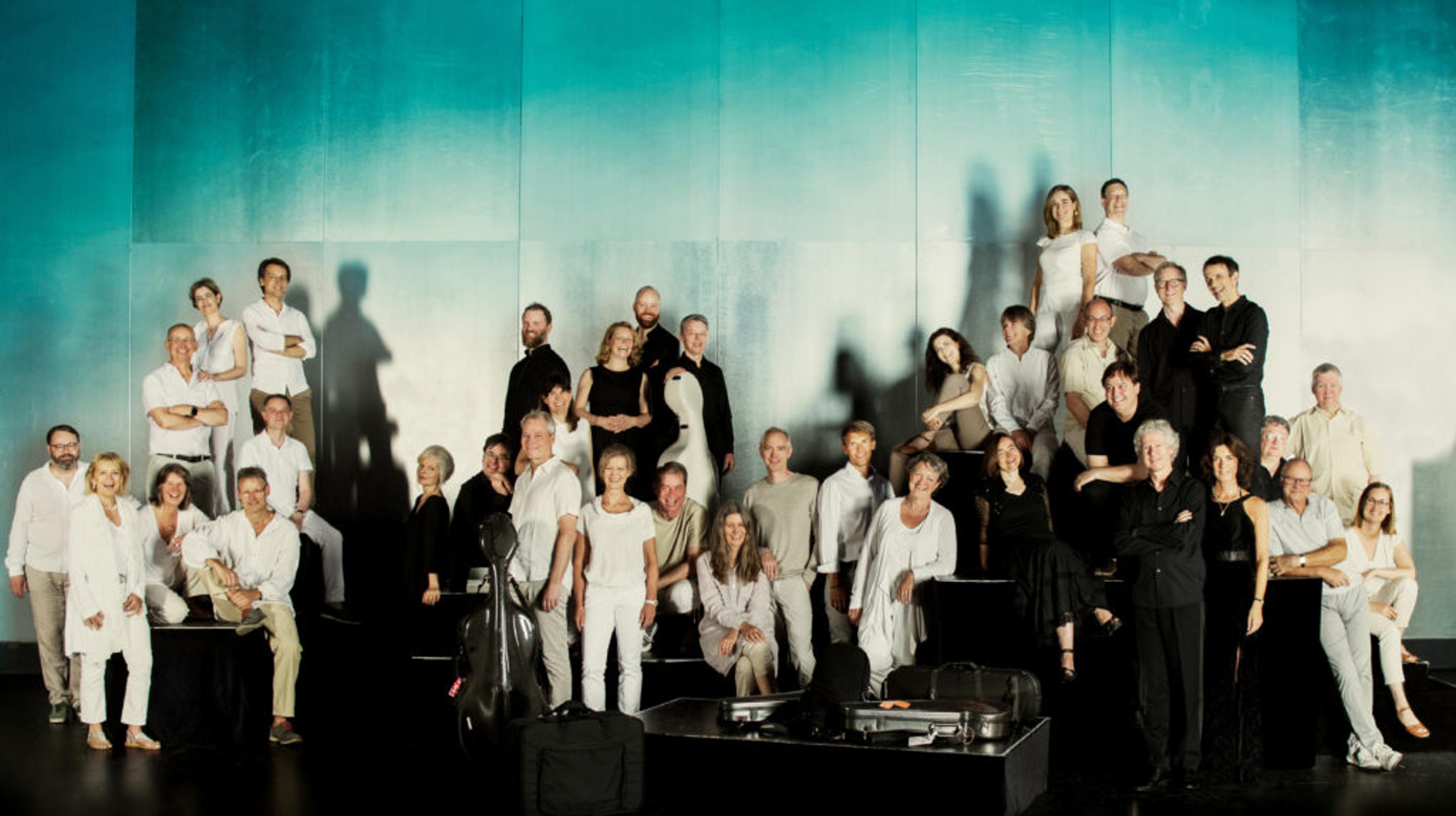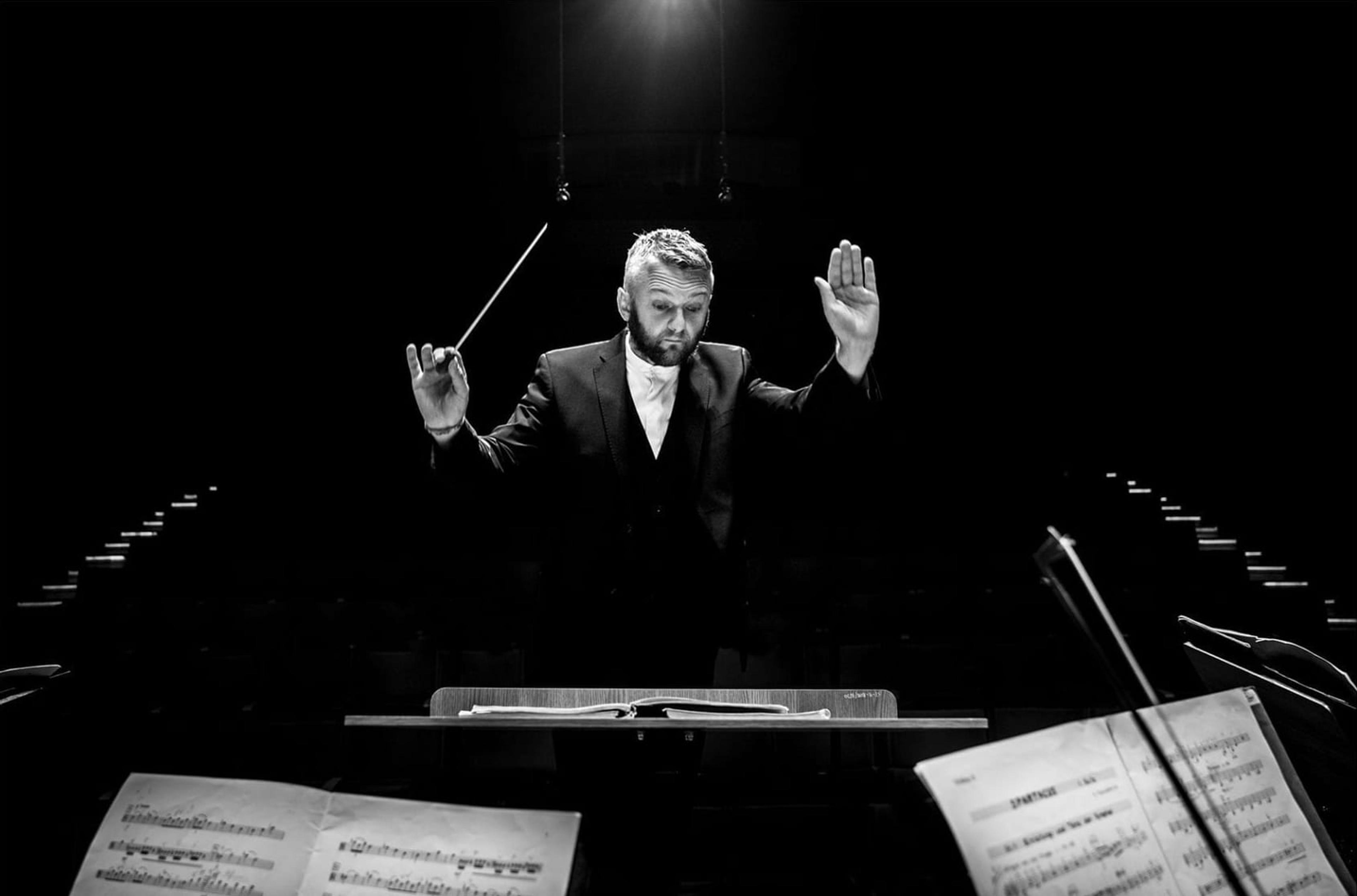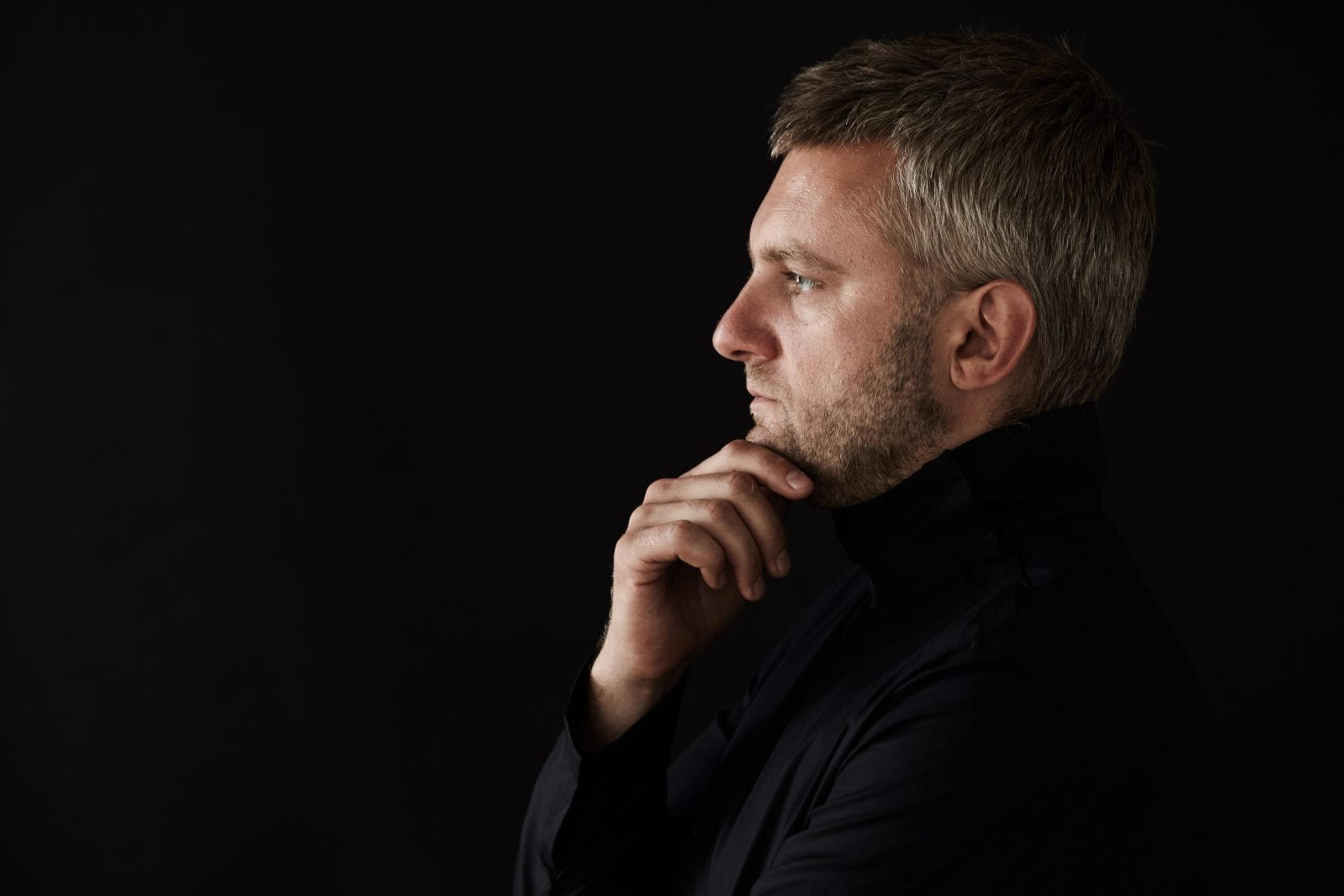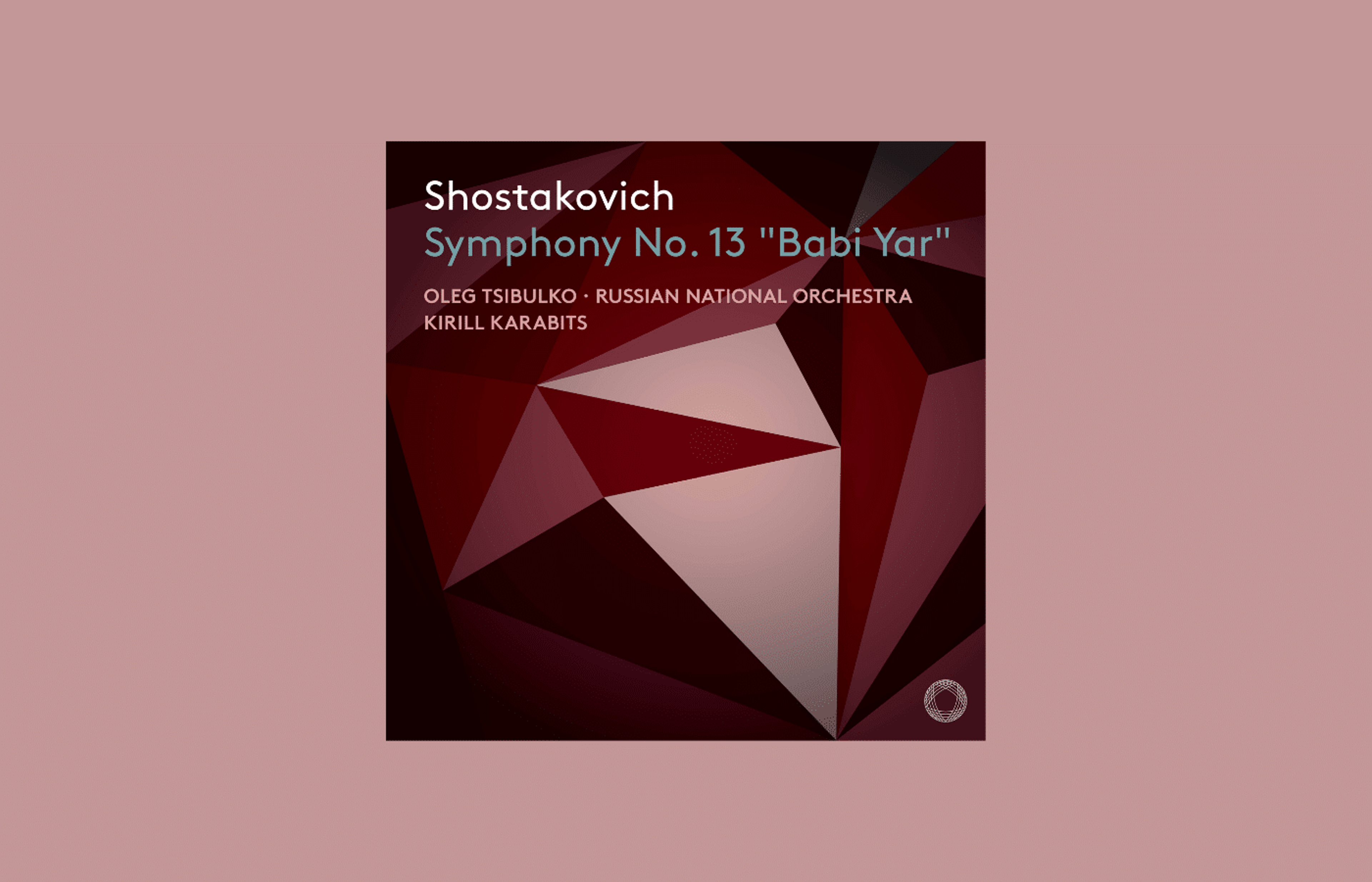Kirill Karabits
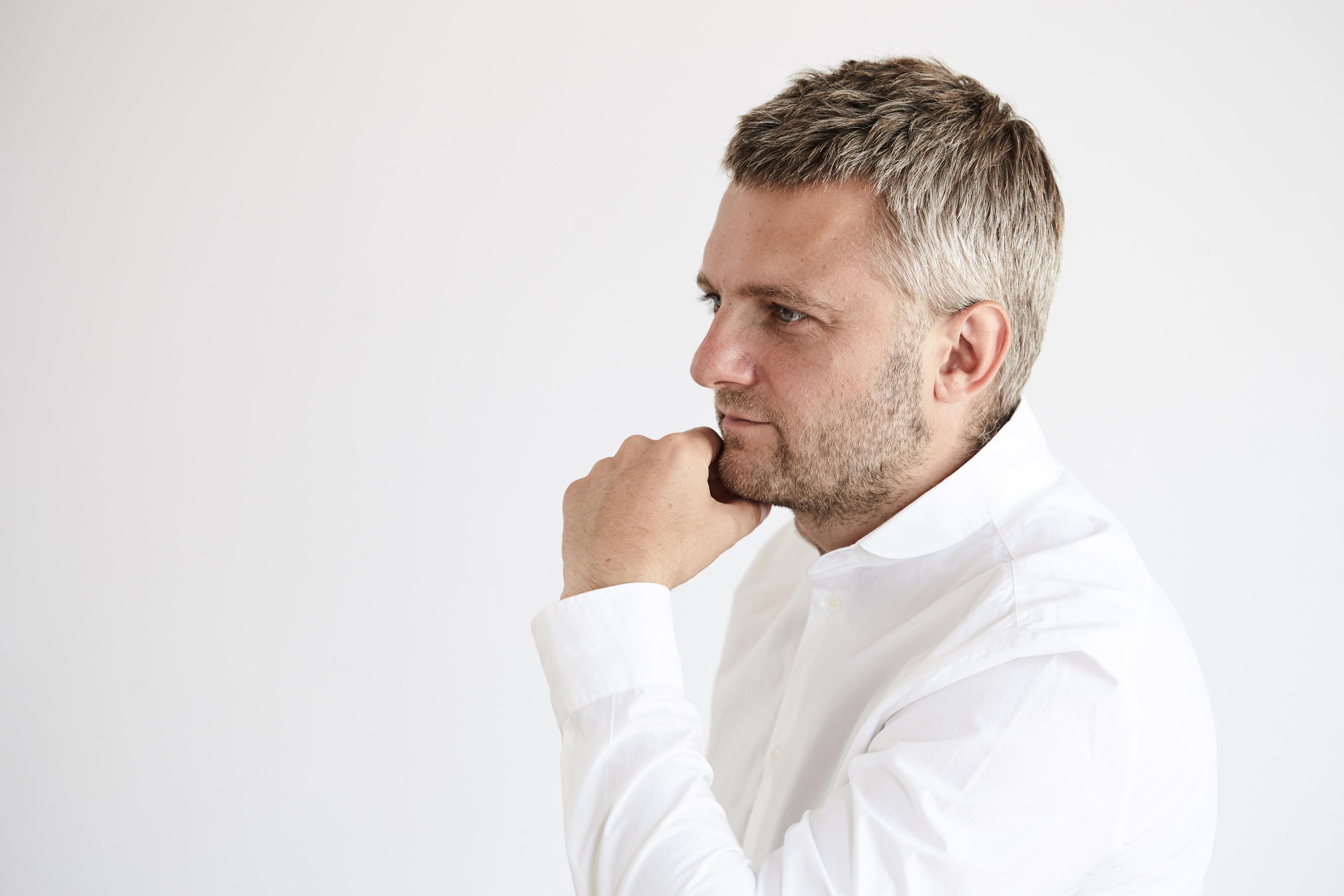

News
- 04 October 2023
Kirill Karabits begins final season as Chief Conductor of Bournemouth Symphony Orchestra
Read full article - 04 November 2022
Sunwook Kim and Kirill Karabits return to South Korea with the Chamber Orchestra of Europe
Read full article - 22 April 2022
Two debuts for Kirill Karabits
Read full article - 08 December 2021
Kirill Karabits debuts with London Symphony Orchestra
Read full article - 28 October 2021
Kirill Karabits debuts with Pittsburgh Symphony Orchestra
Read full article - 18 September 2020
Kirill Karabits debuts with Zurich Opera conducting Boris Godunov
Read full article - 16 July 2020
Kirill Karabits & Russian National Orchestra release new Shostakovich recording
Read full article - 07 February 2020
Kirill Karabits & Lars Vogt stand out in Beethoven extravaganza
Read full article
Press
Shostakovich's Festive Overture
Bournemouth Symphony OrchestraDec 2023 - Dec 2023Karabits approached the Stravinsky with a seriousness of purpose that drew, for the most part, the best from the BSO. It was a fierce, sombre interpretation that relished the darker colours of the score which, after all, deals with sacrifice and death. And the virtuosity on show certainly made a statement — orchestras are back in Bristol. Here, we got bold brass fanfares, nifty woodwind playing, big-hearted string tunes and a performance full of panache from the BSO and the conductor Kirill Karabits.
- The Times
- 20 December 2023
It fell to Dimitri Shostakovich, in his Festive Overture of 1954, to strike the right tone of grand celebration and exuberant onrushing optimism, played here with invigorating nimble-fingered energy by the BSO under its chief conductor Kirill Karabits
- The Telegraph
- 21 December 2023
Dallas Symphony supplies brilliant Strauss, challenging new Ukrainian works
Dallas Symphony, USANov 2023 - Nov 2023One could hardly overlook the tragic political undertow of the Dallas Symphony Orchestra’s Saturday night program. Led by a Ukrainian guest conductor, Kirill Karabits, it included new war-born works by two Ukrainian composers, and, in Inbal Segev, an Israeli-born cellist. Speaking briefly before Anna Korsun’s "Terricone", Karabits said the piece “very much reflects the turbulent world we are living in at the moment.” The title is a word for piles of processing wastes from mining operations. This particular "Rosenkavalier" Suite ends with a loud rehash of earlier waltzes rather than the opera’s gentle final winks. And Karabits pumped up the famous trio. He daringly stretched the music here and there for maximum expressive effect, and again the orchestra played at its brilliant best.
- The Dallas Morning News
- 12 November 2023
Rachmaninov’s Second Symphony
Bournemouth Symphony OrchestraAug 2023 - Aug 2023Rachmaninov’s Second Symphony was given a genuinely memorable performance, compellingly handled by Karabits from first to last, and matched by the quality of the BSO playing. ... Karabits never allowed the tension to falter or the care over detail to slip. Woodwinds and strings combined to particularly fine effect in the adagio, and the symphony’s interconnections were more persuasively expounded than in any other performance in my experience.
- The Guardian
- 03 August 2023
Mozart, Cosi fan tutte
The Grange FestivalJun 2023 - Jun 2023Karabits is tremendous, immaculate in his judgment of pace and dramatic momentum, marvellously alert to every shift in mood: this is the best conducted Così I’ve heard in ages, and the BSO play wonderfully for him.
- The Guardian
- 09 June 2023
Karabits and the orchestra ... provided deeper insight aplenty, in a performance that seemed almost to have come from the golden age of orchestral Mozart. Karabits’s equally musical and theatrical reading offered great cumulative power and wisdom... So often, one fears that orchestral Mozart has been lost forever; Karabits and the Bournemouth SO showed this categorically not to be the case.
- Opera Today
- 16 June 2023
Bournemouth Symphony Orchestra has the absolute measure of the score under conductor Kirill Karabits, who keeps the music bubbling merrily along even as the four young lovers learn some hard lessons.
- The Stage
- 09 June 2023
This was as close to perfection as any Così can be, and it was achieved not only through Martin Lloyd-Evans’ production but the superb conducting of Kirill Karabits and the glorious singing of a young yet confident cast. Karabits has been with the Bournemouth Symphony Orchestra for fourteen years, and it shows: the way in which the players respond to his direction is intuitive yet free-spirited, and the nurturing given to the singers in the many challenging parts of the score is remarkable.
- Music OMH
- 10 June 2023
Here, everything is in scale, in sharp focus: Mozart’s music is projected in all its beauty, its depth of feeling, its fire – not least because of the commitment of the players of the Bournemouth Symphony Orchestra and the dynamism of their long-time conductor Kirill Karabits.
- Seen and Heard International
- 10 June 2023
Akimenko, Glazunov, Taneyev, Shostakovich
Poole LighthouseFeb 2023 - Feb 2023...it was the torrential performance of Shostakovich’s Fourth Symphony that followed which defined the evening, almost wiping out memories of what had come before it. This was Karabits and his orchestra (substantially enlarged for the occasion) at their very finest, a perfect example of what he has achieved on the south coast. I’ve not heard Karabits do anything better in Poole.
- The Guardian
- 09 February 2023
Lindbergh & Beethoven
Poole LighthouseNov 2020 - Nov 2020Under Karabits’s crisp direction, the Bournemouth Symphony Orchestra’s sound was warm and lean ... Beethoven conjures with orchestral colour — and Karabits gave his players room to enjoy that, from Eluned Pierce’s gleaming harp and Jesper Svedberg’s elegant cello solo to Barry Deacon’s mellifluous basset horn.
- The Times
- 12 November 2020
Jongen & Tchaikovsky
Meyerson Symphony Center, Dallas, USFeb 2020 - Feb 2020Karabits’ interpretation of the score yielded an exemplary musical storytelling and showed the Dallas Symphony musicians at their finest. The conductor’s use of layering through the first movement established a clear and compelling narrative with moments of tension that explode into brief climaxes... Karabits moves the ensemble through [Tchaikovksy's Manfred Symphony's (fourth movement)] frenetic dance-like passages to moments of eerie stillness with grace. His use of pauses, gravid with anticipation, is effective. Sustained triple fortes in the strings drive the narrative forward until glistening phrases from the harps bloom through the texture to present the image of Astarte’s descent from Heaven.
- Texas Classical Review
- 29 February 2020
Tchaikovsky’s second movement depicts a waterfall in sonic burbles and cascades worthy of Berlioz. In general, though, sounds here are laid on with a much heavier hand, working up massive climaxes in each movement. Holding all this together is no simple matter, but Karabits did so, brilliantly. This was the musical equivalent of feng shui... Timing and shaping the music most expressively, Karabits sustained tension as powerfully through romantic hushes as through great explosions of sound.
- Dallas News
- 28 February 2020
Karabits commanded the fine points of tempo and timing throughout the hefty length of the score [Tchaikovsky's Manfred Symphony]; every section of the orchestra was in top form, with the string section in particular producing a fine synthesis of precision and lucid timbre. The opening movement, with its pessimistic, down-drifting tunes (opposite the sunny cheerfulness of the preceding Jongen work) gave way to the delicacies of the second movement; here, Karabits saved the light second theme of the movement from syrupiness with an intense energy.
- Theater Jones
- 28 February 2020
Beethoven Symphonies No.1 & No.3
Barbican Centre, LondonFeb 2020 - Feb 2020After the long, drawn chords serving as a series of question marks, I adored Karabits and the BSO in the First. The Allegro con brio of the opening movement had real zing – clean, lean and urgent – and the Haydnesque wit of the finale was a joy, Karabits, conducting without a baton but with a huge smile. Their Third Symphony was extremely satisfying, with a very moving Marcia funebre. After the thrills and spills of the bloodsport which is natural horn playing in the OAE’s Eroica, it was sobering to realise that even with the safety net of valved horns (and a bumper), there were still spillages in the Scherzo’s Trio section.
- Bachtrack
- 02 February 2020
Prokofiev, Mendelssohn & Lutosławski
Symphony Center, ChicagoOct 2019 - Oct 2019It’s not often that one encounters two artist debuts in a single Chicago Symphony Orchestra subscription concert. Nearly as rare are premieres of works by composers as frequently programmed as Mendelssohn and Prokofiev. Yet such was the case Thursday night at Symphony Center where conductor Kirill Karabits made an impressive podium debut leading the CSO in a nicely varied program that avoided the usual repertorial suspects... Lutoslawski’s work is surely crafted, substantial and compelling, a tough, spiky piece that can make strong impact with the right musicians. Such was the case Thursday night with the outstanding performance delivered by the CSO under Karabits’ baton ... Karabits’ firmly focused direction kept a strong sense of momentum. The various episodes were charted skillfully ... and the Ukrainian conductor put across the score’s punchy, mercurial brilliance with notably uninhibited climaxes. The conductor underlined the folk-influence [in Lutoslawski’s "Concerto for Orchestra"] throughout, as with the woodwinds’ chorale theme. There was fine airy delicacy in the high string writing and contrasting pages, Karabits ratcheting up the score’s angular brilliance in a thrilling dash to the coda.
- Chicago Classical Review
- 11 October 2019
Not only was the Chicago Symphony Orchestra at its rip-roaring best as the dynamic conductor Kirill Karabits led a concert featuring an intriguing mix of works by Prokofiev, Mendelssohn and Witold Lutoslawski, but pianist Sunwook Kim also made a simply smashing CSO debut... Throughout, the orchestra (which clearly displayed a genuine affection for both Kim and Karabits, the Ukrainian-born conductor who has led England’s acclaimed Bournemouth Symphony Orchestra for the past 11 seasons), played beautifully. Karabits and the musicians established a pristine synchrony with the pianist as the low strings sang Mendelssohn’s sweet melodies, and the brass confidently pronounced a more excited state of being. And together they generated the kind of joy, excitement and originality that infuses all the composer’s work, and prompted composer William Schuman to describe Mendelssohn as “the Mozart of the 19th century". [Lutoslawski’s “Concerto for Orchestra”] is a thrilling, inventive, color-streaked work that should be performed far more often. And it was played to perfection under the meticulous, precisely shaped direction of Karabits, who should be invited back to lead the CSO more often, too.
- WTTW Chicago
- 11 October 2019
